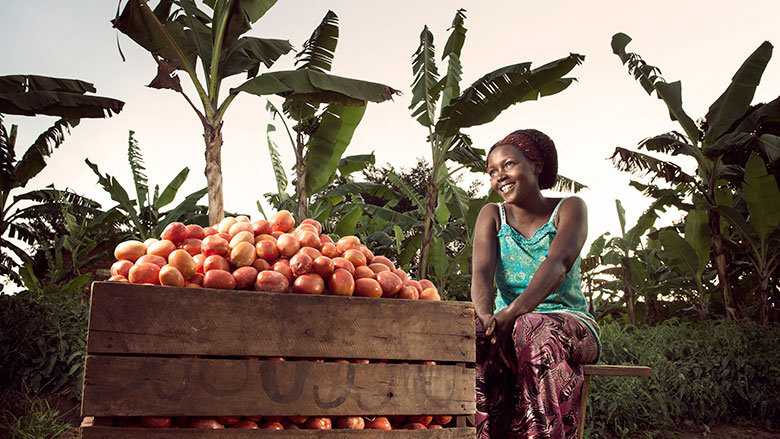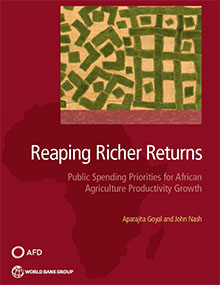The new Africa regional flagship study, Reaping Richer Returns: Public Spending Priorities for Africa Agriculture Productivity Growth, explores how effective, efficient and climate resilient public spending in and for agriculture can be the foundation for transformation and reducing poverty in Sub-Saharan African countries.
“A vibrant, sustainable and resilient agriculture sector is vital for Sub-Saharan Africa’s economic future,” said Makhtar Diop, World Bank Vice President for the Africa region. “To make a significant dent on poverty, enhancing the productivity and competitiveness of African agriculture must become a priority. Reforming the design and implementation of public spending programs while rebalancing in favor of high-return public goods could produce significant gains.”
According to the study, the challenge is not only that agricultural public spending in Sub-Saharan Africa lags behind other developing regions but its impact is vitiated by programs and transfers that tend to benefit the better off, with insignificant gains for agriculture, or for the poor.
“Sub-Saharan African countries tend to underfund high-return public good investments related to technology generation and adoption, strengthening markets, and rural infrastructure,” said Aparajita Goyal, World Bank senior economist and task team leader of the Africa regional flagship study. “The study recommends areas where African governments can prioritize spending to reap richer returns, including implementing smart subsidies, boosting spending on research and development and eliminating barriers that impede
Conditions are ripe for boosting the productivity of African agriculture, the study says. African regional markets are growing rapidly, driven by population, urbanization, and income growth, and are forecast to reach a trillion dollars by 2030. Prospects are also promising on the supply side, according to the study, since Africa’s potential for agricultural prosperity is enhanced by an abundance of vital components.
The study uses the successes of African and other developing countries around the world to provide lessons for African agriculture, the quality of public spending and the efficiency of resource use. For example, input promotion during high agricultural productivity periods in Asian and South American countries addressed systemic constraints to productivity through integrated investments in improved technologies, extension services, water and soil management, and market linkages.
Sub-Saharan African countries could achieve greater impact with current investments by moving away from a heavy focus on fertilizer subsidies, the study says, and moving toward a package of complementary investments. Increasing the quality of public spending in agriculture while rebalancing its composition towards such investments could reap massive benefits in agriculture productivity.”
In addition, the study notes that improvement of the policy environment through trade and regulatory policy reforms complements spending, by enhancing incentives for producers and innovators to take advantage of public goods that crowd in private investment. According to the study, shortcomings of the budgeting process itself also reduce spending effectiveness.
While enhanced public spending in agriculture can provide a solid foundation to increase agriculture productivity in Sub-Saharan Africa, the study points out that it is only one element for agricultural transformation, and must be


